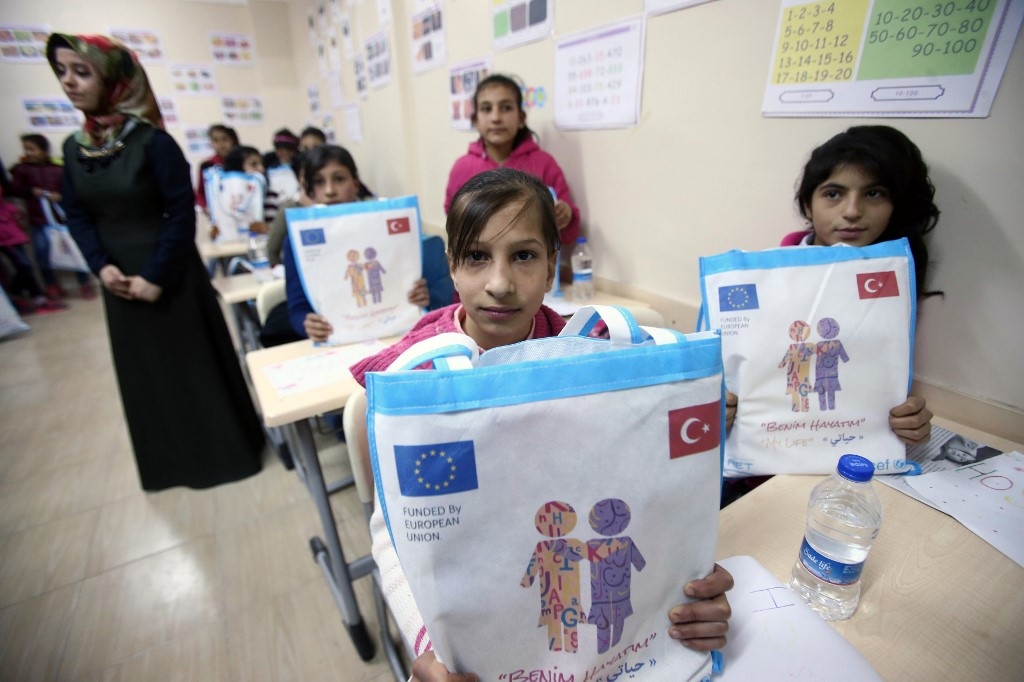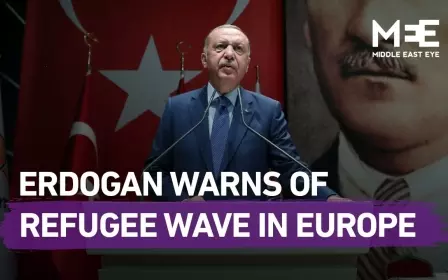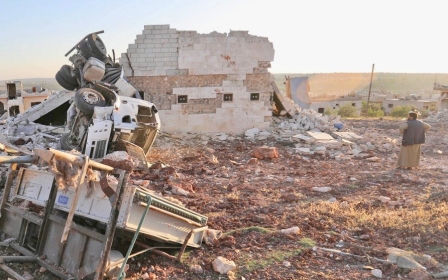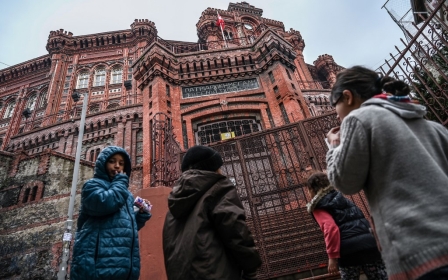EU delegation in Turkey under fire for tweeting school message in Arabic

Thousands of Twitter users accused the European Union of treating Turkey as an Arab country after its delegation to Ankara posted a tweet in Arabic to mark the start of the new academic year.
Writing its message in both Arabic and Turkish, the official EU account welcomed children back to school and wished students "an enjoyable year".
But the delegation's message drew the ire of thousands of Turkish Twitter users, forcing the EU to take down its tweet and issue a clarification hours after it posted the original tweet.
“2019-2020 academic year starts today. We wish an enjoyable year to the students, an opportunity to learn more. #BackToSchool,” the delegation tweeted in Turkish, Arabic and English in two separate tweets.
New MEE newsletter: Jerusalem Dispatch
Sign up to get the latest insights and analysis on Israel-Palestine, alongside Turkey Unpacked and other MEE newsletters
Responding to the EU's original tweet, Ipek Ozbey, a journalist for Hurriyet Daily said: “What's this Arabic? Get a hold of yourself.”
Another writer, Ozlem Ozdemir, tweeted: “Sorry, what is this Arabic? This is Turkey, our official language is Turkish, and probably you aren’t aware but in any case, we aren’t Arabs. What is the purpose of this message? Does the EU perceive us as Arab?”
Others shared a picture of Mustafa Kemal Ataturk, founder of modern Turkey, who changed the Turkish alphabet from Arabic letters to Latin.
Translation: “This alphabet isn’t used on this soil. Besides, Turkish is the official language of this country.”
Hours after the original tweet, the EU delegation to Turkey responded to the criticisms and said it had been tweeting in Arabic for the last three years due to its educational partnership with Turkey's Ministry of Education for the schooling of Syrian refugees.
In a statement published online, the delegation offered clarification and said the messages were "addressed to Syrians in Turkey."
"These messages are addressed to Syrians in Turkey in order to explain in their language what we do in joint education, health, humanitarian aid, migration management, infrastructure and socio-economic projects implemented under the Facility for Refugees in Turkey (FRIT)," the EU delegation said.
Mehmet Algan, a former member of parliament who has close ties to Arab communities in the country, told Middle East Eye that the social media reaction represented rising xenophobia towards Arabs and Syrian refugees inside Turkey.
“Most of the commentators on social media are ignorant of what the EU has been doing in the country to help refugees get to schools and receive an education," Algan said.
"Thanks to the funds provided by the union, hundreds of schools have been built. That’s why they tweet in Arabic. But conspiracy-ridden minds always believe there is an EU plan to Arabise the country."
Data released by the EU delegation show that the EU had provided more than 1.2bn euros to school projects in Turkey.
As part of the EU programme, 450,000 Syrian children in the country have received Turkish language training, and currently, 193,000 students are enrolled in 400 public schools.
Turkish officials, however, have said that the EU has failed to meet the agreement it signed with Turkey in 2016, which promised three billion euros.
This article is available in French on Middle East Eye French edition.
Middle East Eye delivers independent and unrivalled coverage and analysis of the Middle East, North Africa and beyond. To learn more about republishing this content and the associated fees, please fill out this form. More about MEE can be found here.





